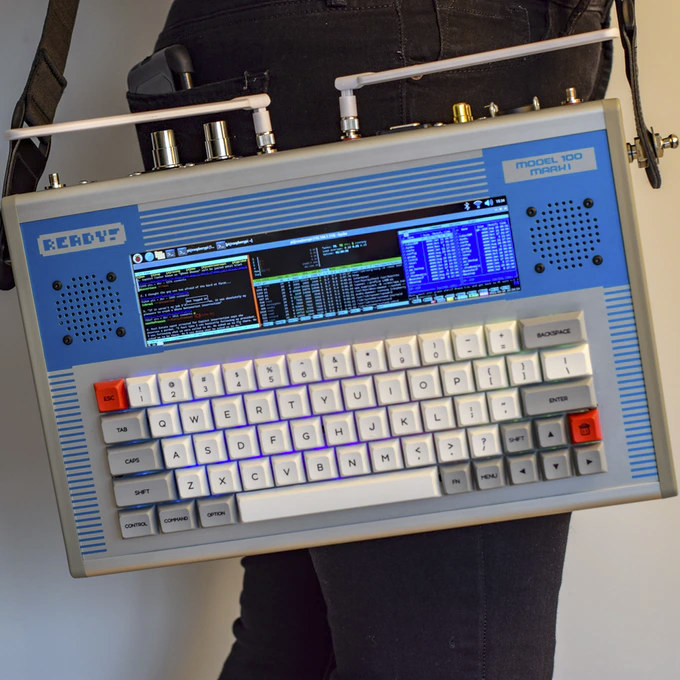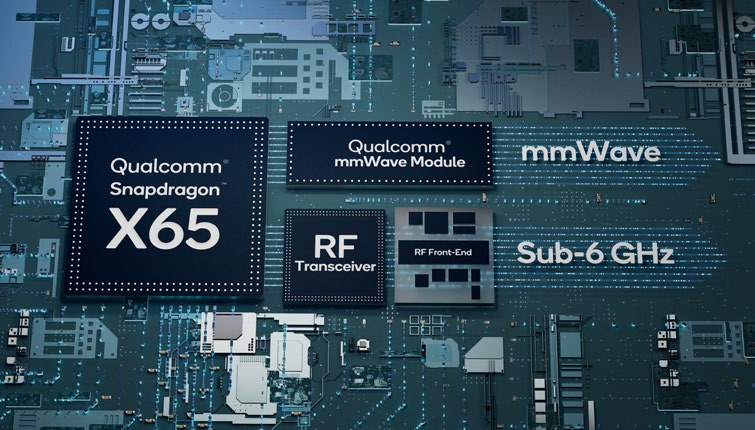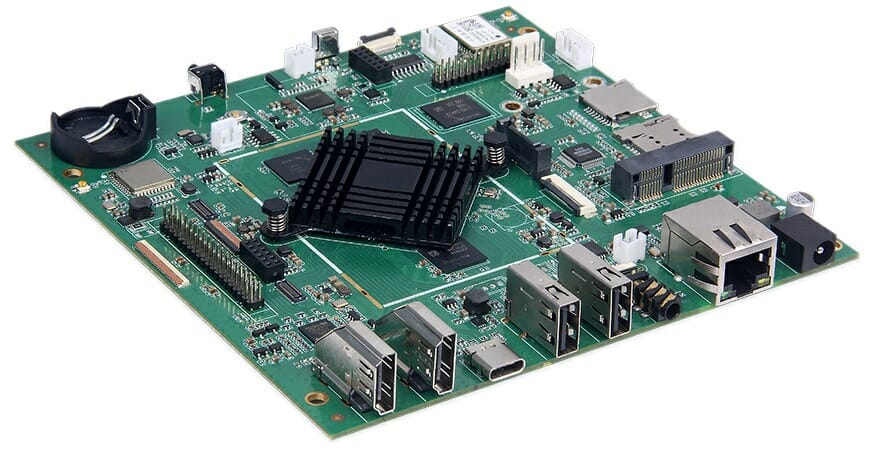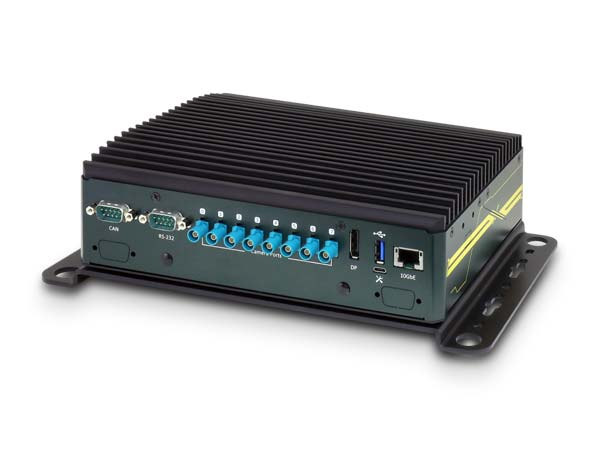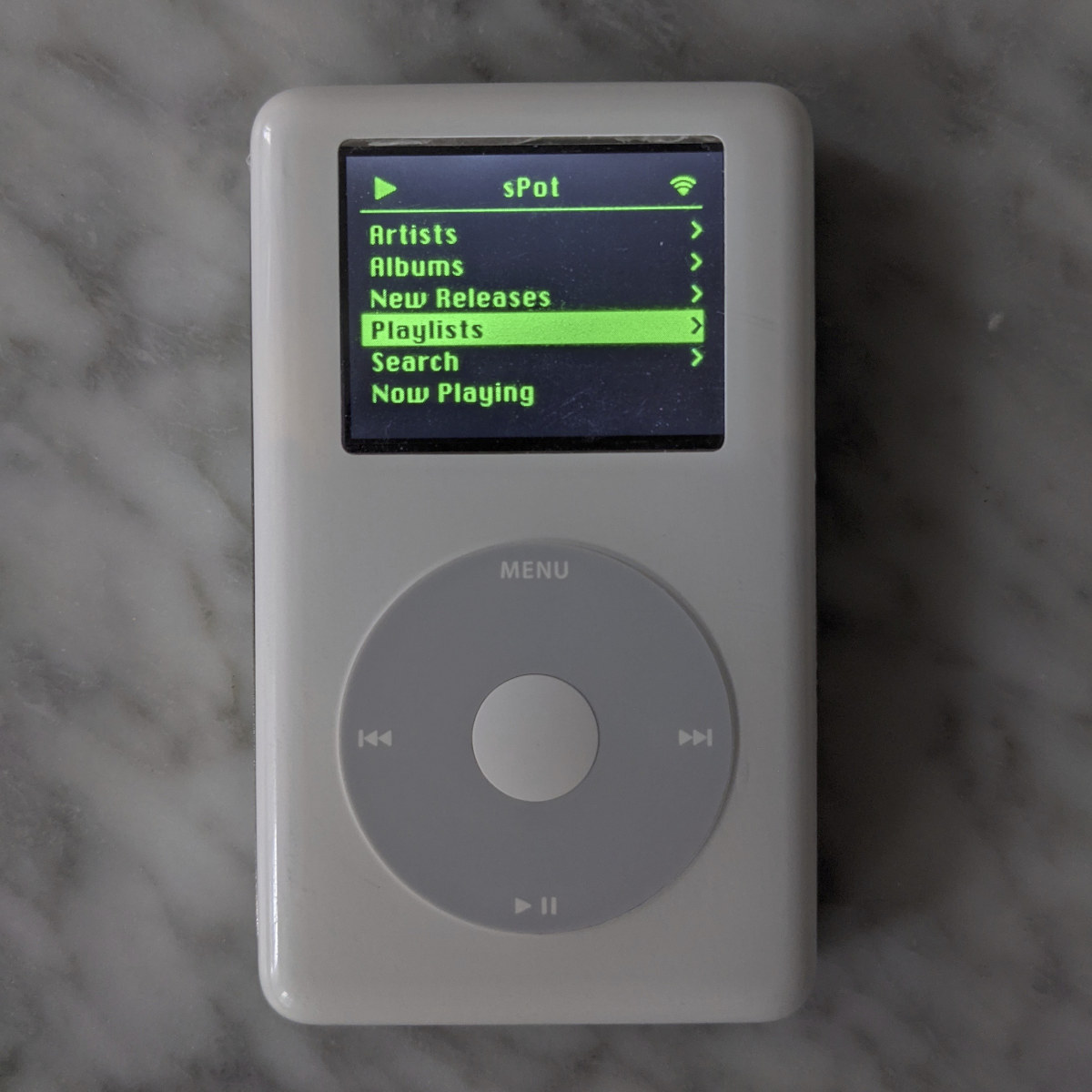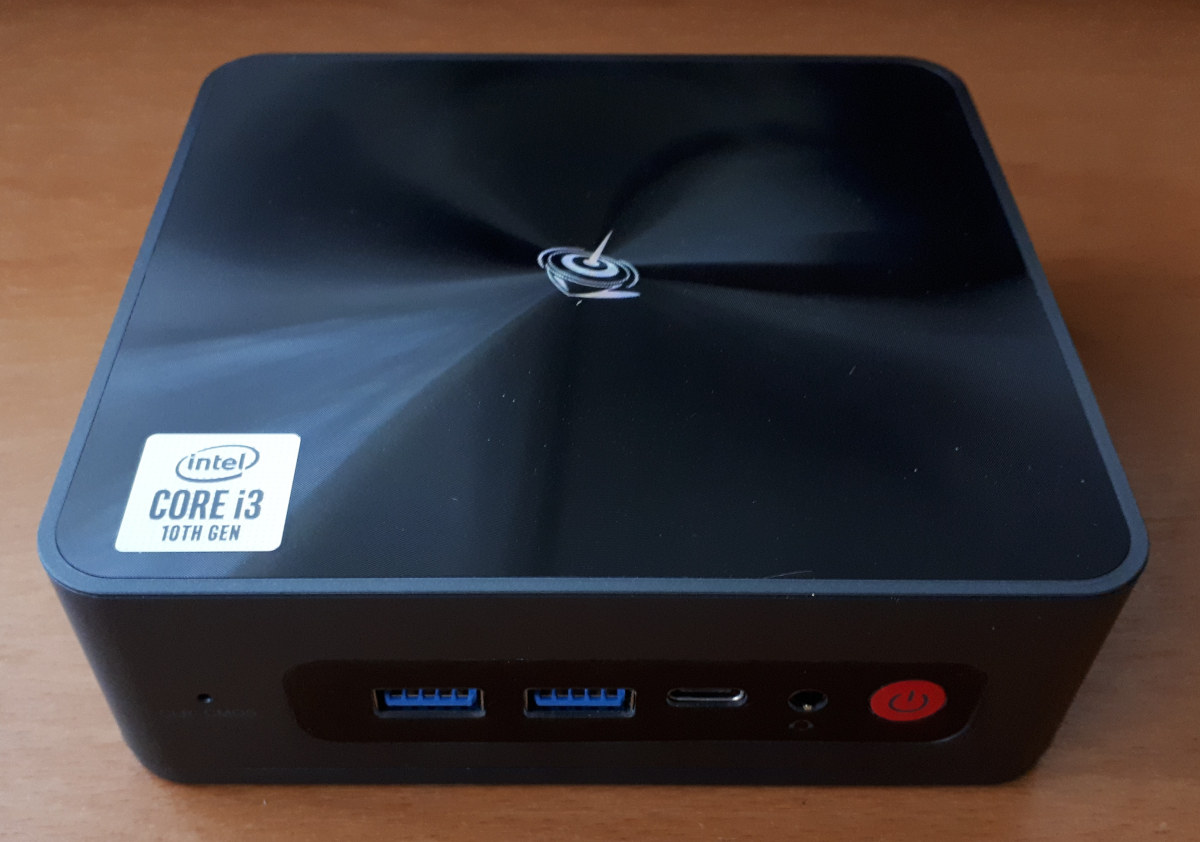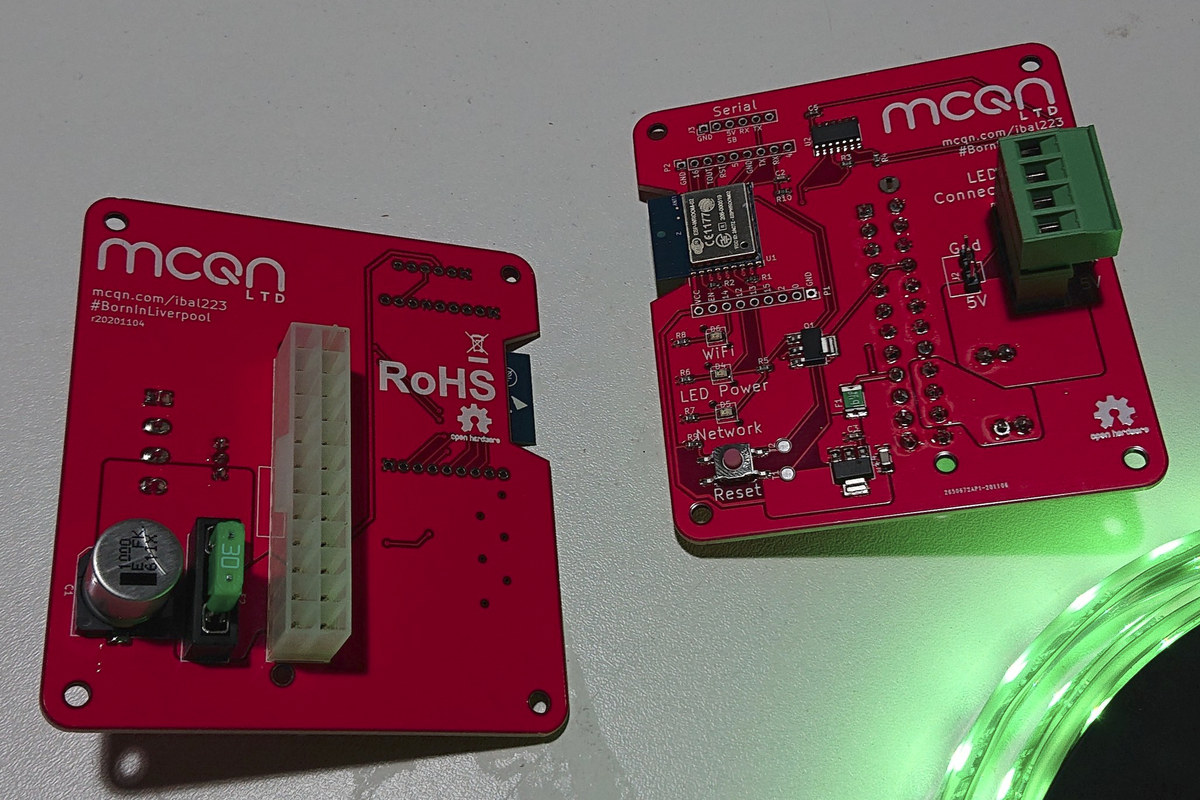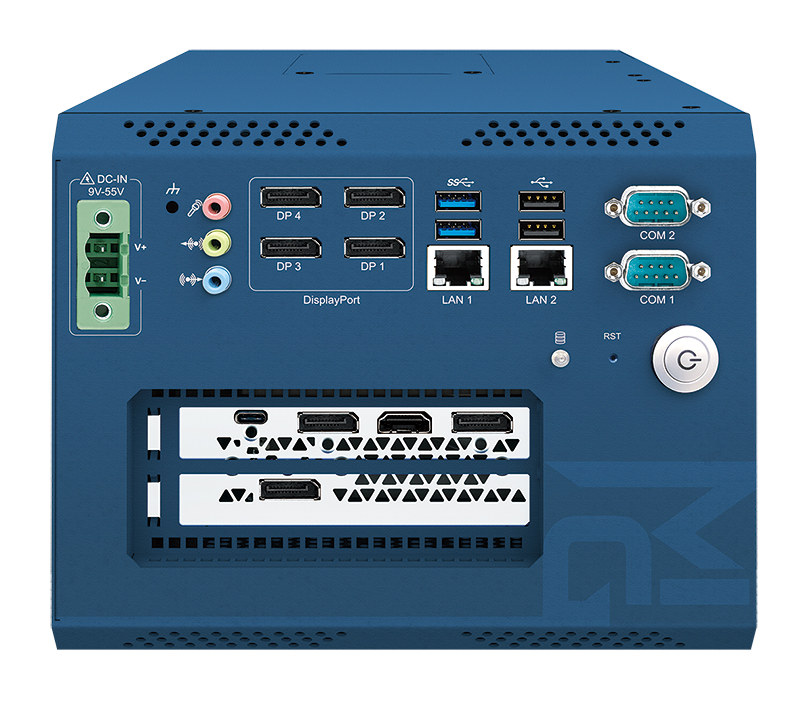We recently wrote about Devterm, a modular, retro-looking portable computer that looks like a typewriter with an extra-wide display, and takes Raspberry Pi CM3-series modules, or other compatible modules made by Clockwork based on Rockchip RK3399 or Allwinner H6. If you’re into this kind of device, but would like to use your own Raspberry Pi, another SBC, an Intel NUC motherboard, a Nano/Pico-ITX board, or even your smartphone, Ready! Model 100 single board computer expansion system may be worth looking into. Ready! Model 100 key features and specifications: Compatibility – Accommodates any hardware using 5V or 12V power input including smartphones, or arm or x86 SBCs such as Raspberry Pi 4, and compact motherboard following NUC, 4×4, 5×5, or Nano/Pico ITX form factors. Storage – Space for SSD Display – 8.8-inch 1920×480 “3xVGA” HDMI Touchscreen Video Output – HDMI (if dual HDMI supported on SBC) Audio – 10W stereo speaker […]
Snapdragon X65 is the world’s first 10 Gigabit 5G modem
Announced in 2017, the first Qualcomm 5G modem – named Snapdragon X50 – could achieve up to 5 Gbps downloads, it was following by Snapdragon X55 with peak download speeds of 7 Gbps, and Snapdragon X60 upped that to 7.5 Gbps in 2020. The company has now unveiled its fourth-generation 5G modem with Snapdragon X65 promising up to 10 Gigabit per second peak download speed. The new modem is also said to be the first to feature a 3GPP Release 16 modem-to-antenna solution and may be used in mobile broadband, fixed wireless, industrial IoT, and 5G private network applications. Qualcomm Snapdragon X65 key features and specifications: 10 Gbps peak speeds in 5G standalone and non-standalone modes 3GPP Release 16 support Cellular Technology – 5G NR, LTE, WCDMA (DB-DC-HSDPA), TD-SCDMA, CDMA 1x, GSM/EDGE 5G Spectrum – mmWave-sub6 aggregation, sub-6 carrier aggregation (FDD-TDD, FDD-FDD, TDD-TDD), Dynamic Spectrum Sharing (DSS) 5G Modes – […]
Geniatech RK3568 Development Board to support Android 11 and Linux
RK3566 and RK3568 are the latest AIoT processors from Rockchip equipped with four Arm Cortex-A55 cores, a Mali-G52 GPU, and an impressive range of peripherals that make them suitable for all sorts of applications including AI edge computing and network video recorder (NVR). We already know Pine64 is working on Quartz64 SBC based on Rockchip RK3566, but I’ve just noticed Geniatech’s “RK3568 development board” that should offer even more features since the processor comes with extra I/Os compared to its little brother. Let’s have a look. Geniatech RK3568 development board specifications: SoC – Rockchip RK3568 quad-core Cortex-A55 processor up to 2.0 GHz with Arm Mali-G52 GPU supporting OpenGL ES 1.1/2.0/3.2, OpenCL 2.0, Vulkan 1.1, 0.8 TOPS NPU for AI acceleration System Memory – Up to 4 GB LPDDR4 Storage – Up to 128 GB eMMC 5.1 flash, 1x SATA 3.0 port, MicroSD card slot, M.2 socket for NVMe SSD (See […]
Jetson AGX Xavier based Edge AI Platform supports 8 GMSL automotive cameras and 10Gbps Ethernet
Neousys Technology, a Taiwan-based provider of rugged embedded systems, has introduced the NRU-110V Edge AI inference platform powered by an NVIDIA Jetson AGX Xavier SoM. It comes with eight FAKRA Z connectors to support up to eight GMSL automotive cameras, as well as one 10GbE (10 Gigabit Ethernet) port for real-time video data transfer. The system specifically supports GMSL cameras with 3-exposure HDR, LED flicker mitigation, good light-sensitivity, and IP67 waterproof characteristics, and also comes with a synchronize mechanism to simultaneously capture high-quality images from 8 GMSL cameras while accepting GPS PPS signal to align image data with other sensors. That makes it suitable for various applications ranging from autonomous driving, mobile robots, precision agriculture, intelligent V2X, to teleoperation. Neousys NRU-110V specifications: System-on-Module – NVIDIA Jetson AGX Xavier SoM with SoC NVIDIA 512-core Volta GPU 8-core Arm Carmel CPU 2x NVDLA Engines 7-Way VLIW Vision Processor Memory – 32GB LPDDR4x […]
iPod Classic given new life with Raspberry Pi Zero W & Spotify
Guy Dupont got a bunch of 2004, fourth-generation iPod Classic MP3 players from his mother-in-law, and instead of playing MP3 files on the media players, he decided to repurpose one with a Raspberry Pi Zero W to be able to stream music from Spotify over WiFi. The resulting project is called sPot (ess-pot), and looks just like an original iPod, but it’s a Linux device that can stream/search via Spotify with a UI written in Python and based on the original iPod experience. But apart from the enclosure, and the original “click wheel” there’s not much left from the original design. Besides the Raspberry Pi Zero W SBC and iPod enclosure, the sPod includesAdafruit Mini LiPoly/LiIon USB Charger and PowerBoost 1000 Basic boards for charging and power management, a 1,000mah,3.7V rechargeable li-ion battery, vibration motor discs For haptic feedback, a 2-inch Adafruit TFT display, and a few other components, wires, […]
Beelink SEI Review – A Core i3-10110U Mini PC Tested with Windows and Ubuntu
Beelink has launched a new range of mini PCs called the SEi Series. Similar in size and appearance to an Intel ‘NUC’ they are available in various configurations. Beelink sent a Core i3-10110U SEi model for review which is the version that has now replaced their i3-1005G1 model which they had to discontinue due to the lack of processor availability. There is also an i5-8259U model in the series. Beelink SEi Hardware Overview The SEi physically consists of a 124 x 113 x 41mm (4.88 x 4.48 x 1.61 inches) rectangular plastic case. It is an actively cooled mini PC and uses Intel’s 14 nm++ Core i3-10110U Comet Lake processor which is a dual-core 4-thread 2.10 GHz processor boosting to 4.10 GHz with Intel’s UHD Graphics for 10th Gen Intel Processors. The front panel has a power button, a headphone jack, a Type-C USB 3.0 port, and two USB 3.0 […]
ESP8266 board with 24-pin ATX connector drives RGB LED strips
“Adding Open Hardware to Open Software for a More Equitable IoT” talk at FOSDEM 2021 discussed the importance of open-source hardware and software for IoT devices, notably to avoid getting a brick after the cloud service is suddenly terminated. Adrian McEwen then specifically talked about his “My Baby’s Got LED” ESP8266 open-source hardware board powered by… a USB charger? nope. A battery? You’ve got to be kidding. Instead, the ESP8266 board is equipped with an ATX connector taking a standard power supply found in PC towers and desktops. But why? That’s because the board is designed to control a string of Neopixels/WS2812 RGB LED’s, and a 500W ATX power supply can power up to 500 lights. MCQN’s “My Baby’s Got LED” board specifications: Wireless module – ESP-WROOM-02 ESP8266 module with WiFi 4 connectivity LED strip connector – 4-pin terminal block Expansion – 2x 9-pin unpopulated 2.54mm pitch header for easy […]
Ryzen Embedded V1807B AI Edge PC supports dual-slot graphics cards
Many AI edge computers come with dedicated AI accelerators from Intel, Google, Gyrfalcon, and others. But as we’ve seen with Cincoze GM-1000 embedded mini PC, some include support for more traditional GPUs, in this case, an NVIDIA Quadro Embedded P2000 MXM module. Ryzen Embedded V1807B powered Vecow MIG-1000 AI edge PC is another such solution with up to 64GB DDR4, four DisplayPort outputs, and a PCIe x16 slot for dual-slot graphics cards from Nvidia or AMD for AI processing performance and/or extra video outputs. Vecow MIG-1000 specifications: SoC – AMD Ryzen Embedded V1807B quad-core processor with Radeon Vega 11 graphics; 35-54W TDP System Memory – 2x DDR4 3200MHz SO-DIMM, up to 64GB Storage – 1x SATA-III port, 1x M.2 Key M socket (2280, PCIe x4) for NVMe SSDs Video Output – 4x DisplayPort up to 4096 x 2160 @ 60Hz Audio Realtek ALC662, 5.1 Channel HD Audio codec 1x Mic-in, […]


